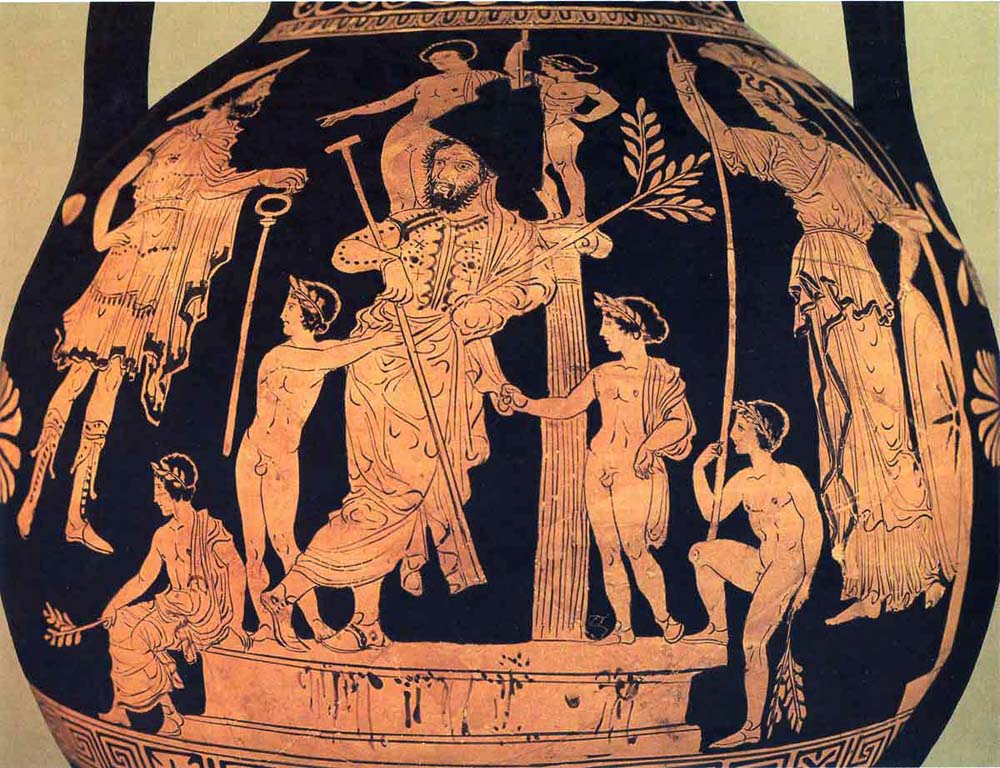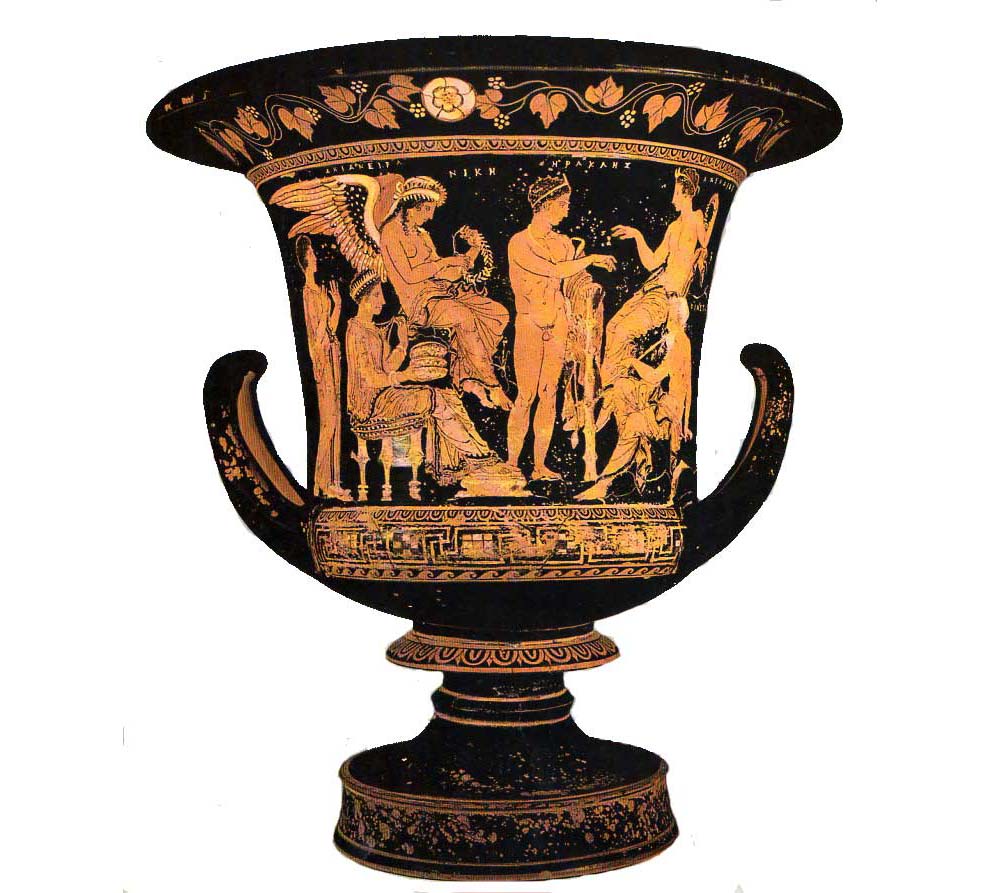Copreus
In Greek mythology, Copreus (Ancient Greek: Κοπρεύς) was King Eurystheus' herald who announced Heracles' Twelve Labors.
His name is usually translated as "dung man", or something equally unflattering. However, the name "Copreus" may originally have had more positive connotations, meaning "grazier" or "man of the land", and been associated with the ownership of cattle rather than just their dung (κόπρος).
Copreus was one of the many children of King Pelops and Hippodamia; with often in excess of 16 children named. Amongst the famous siblings of Copreus would be Atreus, Thyestes, Astydamia and Eurydice.
Some of the children of Pelops, like Pittheus and Troezen were famed for establishing new cities, but no such fame came Copreus’ way.
Whilst in Elis, it was said that Copreus killed a man called Iphitos; for this murder Copreus was forced to flee the land, eventually finding sanctuary in Tiryns.
Tiryns was at the time ruled by Eurystheus, who happened to be Copreus’ nephew, for Eurystheus was the son of Sthenelus, son of Perseus, and Nicippe, Copreus’ sister.
King Eurystheus would absolve Copreus of his crime of murder, for it was in the power of Ancient Greek kings to give such absolution.
Copreus then took up the position of herald of Eurystheus.
Copreus the herald comes to prominence during the tales of Heracles’ Twelve Labours. Heracles was in servitude to King Eurystheus as an act of penance for the killing of his wife and children, and at the behest of Hera, Eurystheus would set Heracles a set of seemingly impossible, and deadly, tasks.
After the first Labour of Heracles, the killing of the Nemean Lion, Eurystheus was so afraid of his cousin, that he forbade Heracles to enter the city of Tiryns, and subsequently, all evidence of the Labours was to be presented outside of the walls of Tiryns.
This, meant that after the first Labour, it was Copreus who delivered each subsequent task to the Greek hero.
Homer, in the Iliad, deemed that the role of herald was beneath the high-born Copreus, and should not have been accepted by the son of Pelops.
Copreus though did have a son, by an unknown woman, a son called Periphetes, who was well thought of member of the Achaean forces at Troy.
"So of a sire much baser an excellent son was begotten
better in prowess of every sort, on his feet and in battle"
Periphetes though, was one of those Achaeans killed by Hector.
Finally, with name of Copreus there is also another individual that appears in the Greek Mythology - namely:
Copreus, king of Haliartus who presented the immortal horse Arion to Heracles. The hero rode the steed in his contest with Cycnus, son of Ares.

Sources
Robin Hard. The Routledge Handbook of Greek Mythology (2004)
"He sent his commands for the labours through a herald, Copreus, son of Pelops the Eleian. This Copreus had killed Iphitus and fled to Mycenae, where he was purified by Eurystheus and took up his abode." (Pseudo-Apollodorus, Bibliotheke 2.5.1).
Homer, Iliad 15.638
Iliad 15.641f













